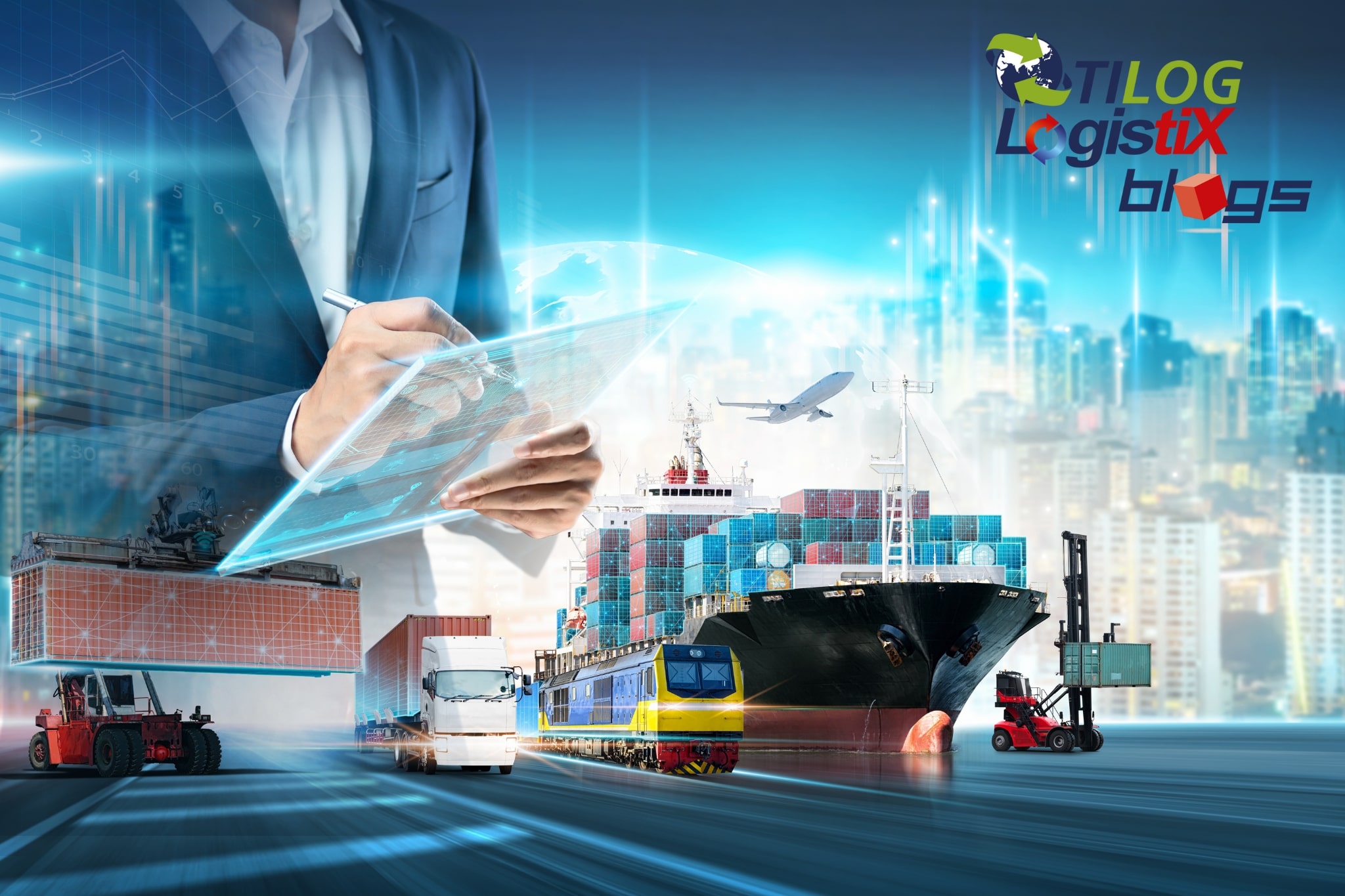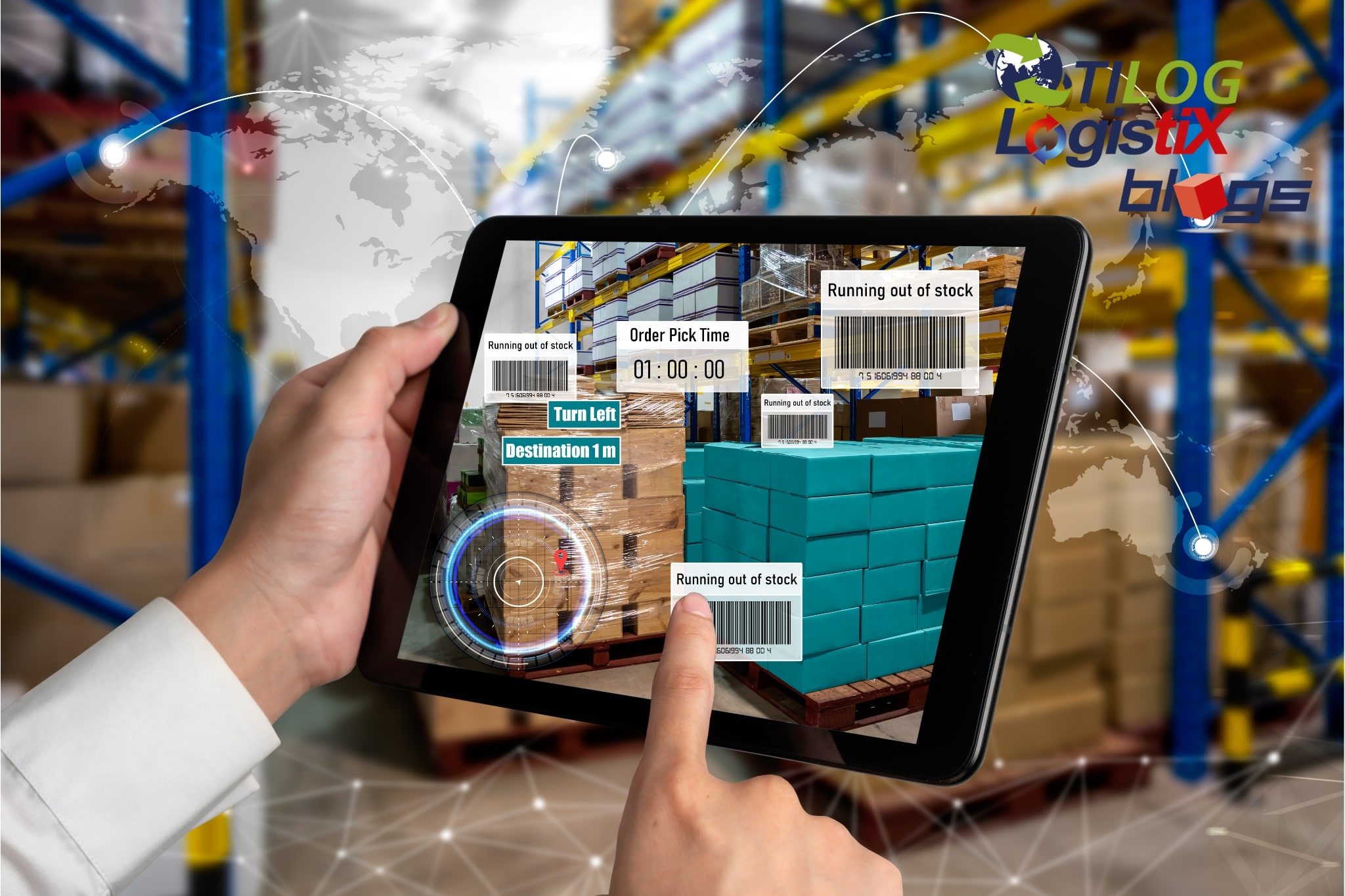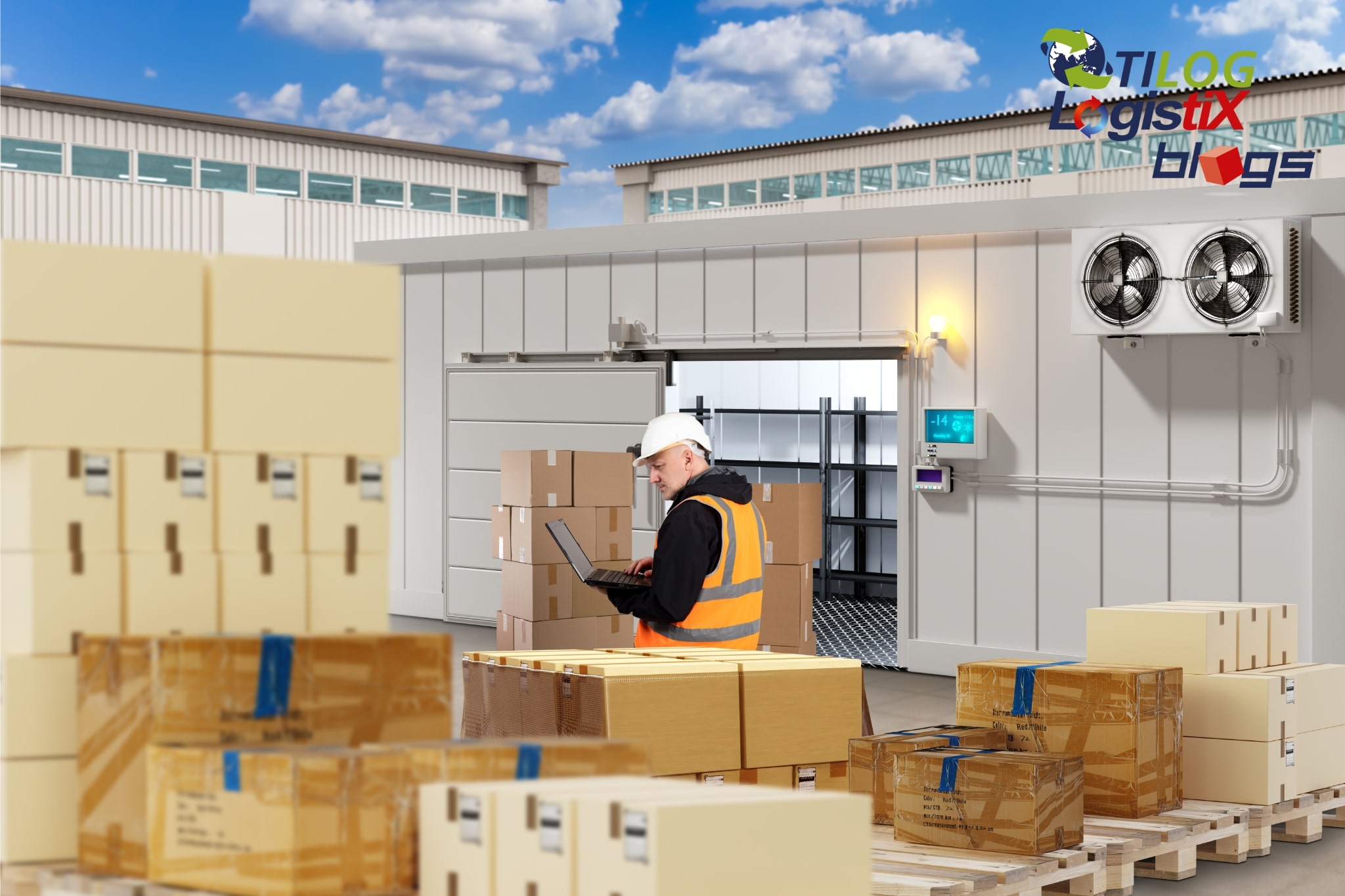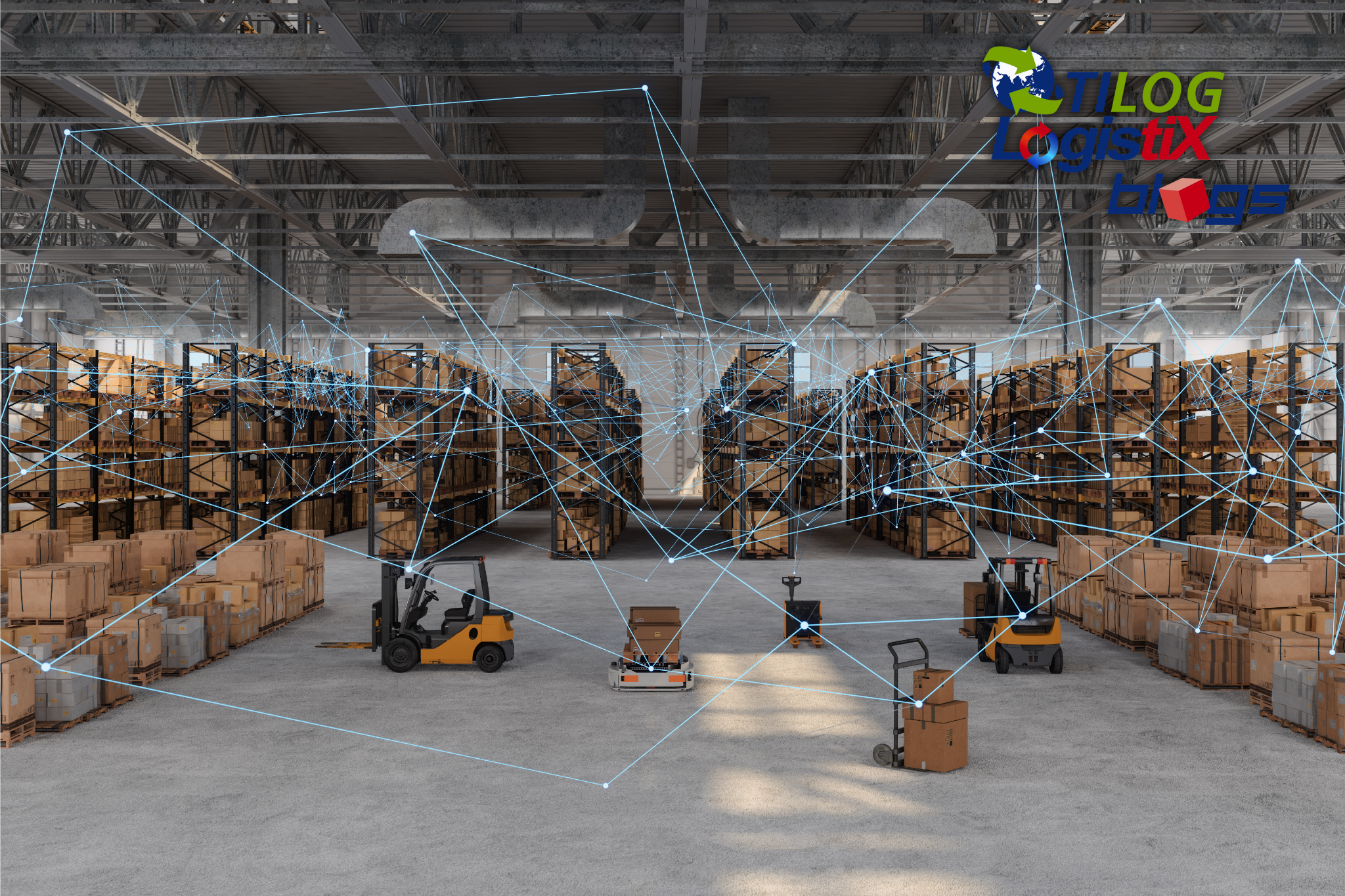The Future of Precision Logistics by using Generative AI to Detect and Assess Potential Risks
Generative AI is improving the efficiency of logistics industry through the potential to handle various challenges, such as the change of operation procedures to reduce products in the inventory, the improvement of transportation routes, or warehouse management.
Identify possible risks and propose countermeasures to optimize resource allocation.

13 March, 2024
Generative AI is a type of AI that can create content in various formats such as copies, images, or videos similar to what humans would create by analyzing and learning from available data to create its own content. It can also analyze large amounts of data and market trends to help logistics providers make smarter business decisions, such as forecasting customer demand, discovering the most suitable decision or transportation route, and specifying an assessing potential risks.
A research from McKinsey reported that companies that use AI-powered predictions can reduce errors by 20-50%, resulting in 65% less lost sales and out-of-stock items. However, it's advisable that logistics providers do not fully rely on AI, as forecasts still require insight analytics from capable and skilled humans to make the most suitable decision possible.
Generative AI enables logistics professionals to communicate in real time with chatbots and virtual assistants powered by Generative AI which uses natural language processing (NLP) to Understand questions and feedback. This helps speed up response time, increase customer satisfaction, and solve problems more efficiently.
With this creative artificial intelligence that can forecast the disruptions to the supply chain, it offers the ability to estimate the likelihood of delivery exemptions and investigating the reasons for delayed deliveries.
Analysts and logistics experts agree that this technology has the potential to resolve challenges in transportation possible such as 360-degree error detection for route deviations, unexpected weather abnormalities, or a possible violation of the terms of service. This will help ground personnel and operations managers manage their work more efficiently since 69% of companies express their lack key insights. By using Generative AI technologies such as control towers and real-time tracking of delivery vehicles, possible delays can be detected and appropriate measures can be taken to avoid significant loss of the company's revenue.

A research from McKinsey reported that companies that use AI-powered predictions can reduce errors by 20-50%, resulting in 65% less lost sales and out-of-stock items. However, it's advisable that logistics providers do not fully rely on AI, as forecasts still require insight analytics from capable and skilled humans to make the most suitable decision possible.
Generative AI enables logistics professionals to communicate in real time with chatbots and virtual assistants powered by Generative AI which uses natural language processing (NLP) to Understand questions and feedback. This helps speed up response time, increase customer satisfaction, and solve problems more efficiently.
With this creative artificial intelligence that can forecast the disruptions to the supply chain, it offers the ability to estimate the likelihood of delivery exemptions and investigating the reasons for delayed deliveries.
Analysts and logistics experts agree that this technology has the potential to resolve challenges in transportation possible such as 360-degree error detection for route deviations, unexpected weather abnormalities, or a possible violation of the terms of service. This will help ground personnel and operations managers manage their work more efficiently since 69% of companies express their lack key insights. By using Generative AI technologies such as control towers and real-time tracking of delivery vehicles, possible delays can be detected and appropriate measures can be taken to avoid significant loss of the company's revenue.

At the moment, many logistics companies have already started using Generative AI in their warehouses where autonomous robots and humans work together to curate products at a faster rate and enable flexible warehouse management.
It can also be combined with blockchain technology to make logistics services more transparent, reliable, and efficient, while reducing fraud by enabling automated payments, delivery tracking and dispute resolution.
More importantly, Generative AI can recommend sustainable alternatives in the supply chain, from sourcing environmentally friendly materials to increasing transportation efficiency to reduce carbon emissions.
An interesting case study is FedEx which handles more than 14 million packages daily through FedEx facilities around the world. Therefore, the company was looking for a more efficient and sustainable business approach. In September 2023, FedEx partnered with US startup Dexterity AI to tackle one of the most challenging tasks which as truck loading. In the past, manual loading was very time and resource consuming because previous existing technologies were unable to handle complex decisions about shipping products that vary vastly in size, shape, weight and packaging materials. This is where DexR, Dexterity AI's proprietary mobile robot, came in and resolve this challenge by automatically arranging products to eliminate the problem of stacking packages with mismatched sizes, shapes, and weights.
At any rate, a survey by Freightos, an international freight booking and payment platform from Israel, reported that only 15% of logistics companies have started to incorporate Generative AI into their operations. This is far from the 96% of logistics professionals who believe they will eventually use AI in their supply chains. Such figures stem from challenges that stand in the way of mass adoption because Generative AI often requires powerful hardware that logistics companies need to invest in, and integrating this technology into existing supply chain operations increases costs.
To keep up with technology trends and innovations in the logistics industry, be sure to stay connected with our future blogs for news and updates. Also, mark your calendar for TILOG-LOGIXTIX 2024 during 15-17 August 2024 at BITEC, Bangkok. This year's event is held under the theme "Connecting the Logistics Future" to empower over 9,000 industrialists and entrepreneurs in the logistics industry from both SMEs and large organizations to take the next step towards their bright logistics future.
More importantly, Generative AI can recommend sustainable alternatives in the supply chain, from sourcing environmentally friendly materials to increasing transportation efficiency to reduce carbon emissions.
An interesting case study is FedEx which handles more than 14 million packages daily through FedEx facilities around the world. Therefore, the company was looking for a more efficient and sustainable business approach. In September 2023, FedEx partnered with US startup Dexterity AI to tackle one of the most challenging tasks which as truck loading. In the past, manual loading was very time and resource consuming because previous existing technologies were unable to handle complex decisions about shipping products that vary vastly in size, shape, weight and packaging materials. This is where DexR, Dexterity AI's proprietary mobile robot, came in and resolve this challenge by automatically arranging products to eliminate the problem of stacking packages with mismatched sizes, shapes, and weights.
At any rate, a survey by Freightos, an international freight booking and payment platform from Israel, reported that only 15% of logistics companies have started to incorporate Generative AI into their operations. This is far from the 96% of logistics professionals who believe they will eventually use AI in their supply chains. Such figures stem from challenges that stand in the way of mass adoption because Generative AI often requires powerful hardware that logistics companies need to invest in, and integrating this technology into existing supply chain operations increases costs.
To keep up with technology trends and innovations in the logistics industry, be sure to stay connected with our future blogs for news and updates. Also, mark your calendar for TILOG-LOGIXTIX 2024 during 15-17 August 2024 at BITEC, Bangkok. This year's event is held under the theme "Connecting the Logistics Future" to empower over 9,000 industrialists and entrepreneurs in the logistics industry from both SMEs and large organizations to take the next step towards their bright logistics future.


